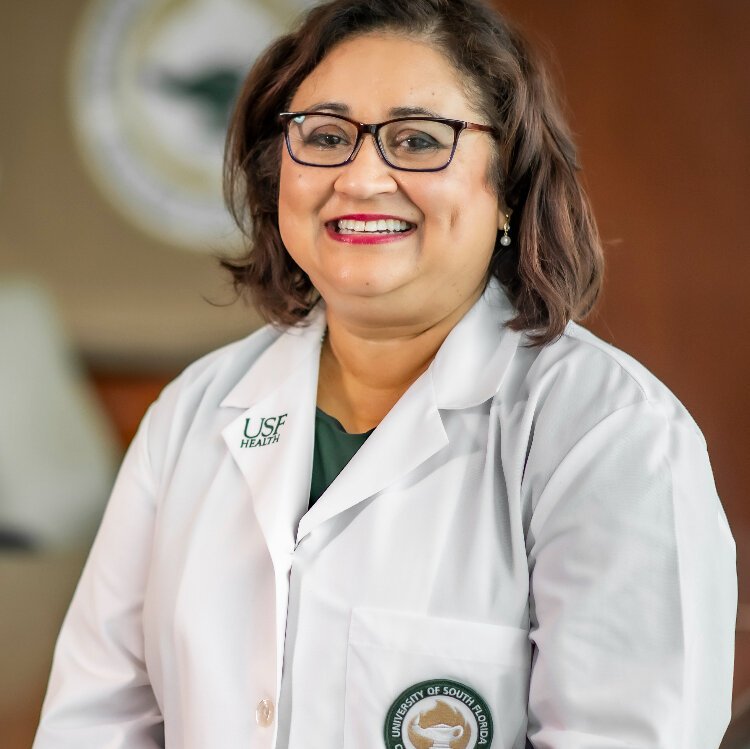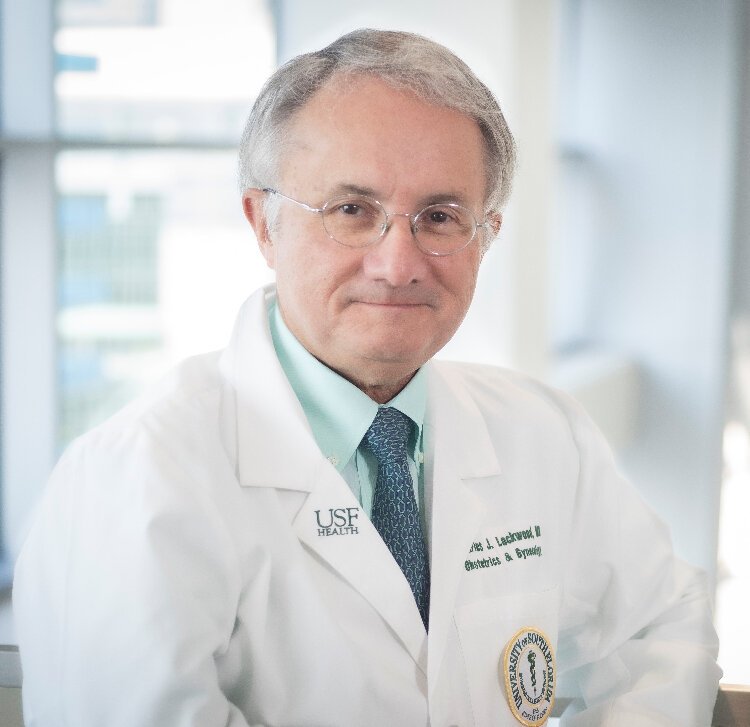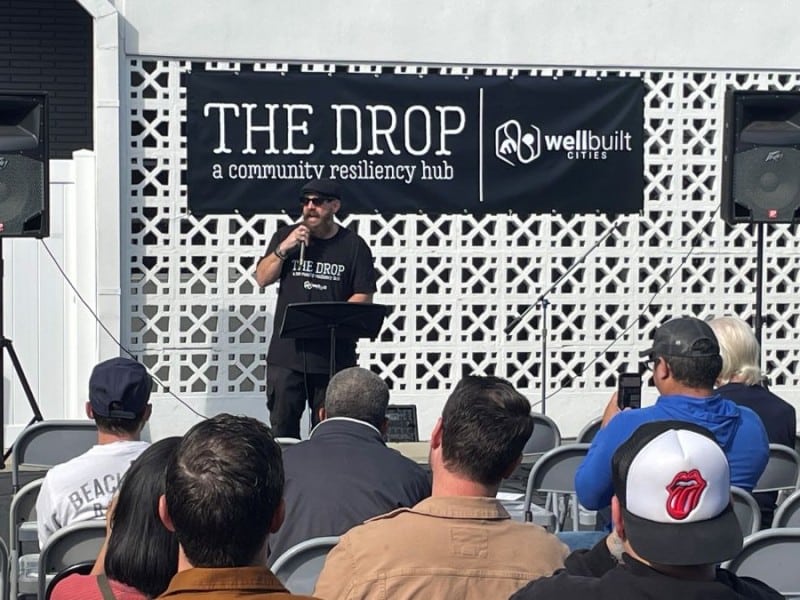USF Health College of Nursing takes healthcare to the streets in Tampa Bay
The USF Health College of Nursing will use federal grant money to launch a rolling mobile health unit in underserved communities around Tampa Bay.
It’s money that will be taken to the streets, literally.
In July, the USF Health College of Nursing received a four-year, $3.85 million grant from the United States Health Resources and Services Administration. A portion of those funds, just over $200,000, will go to launch a mobile health unit (MHU) that will provide clinical care to medically underserved communities in the Tampa Bay area and opportunities for students to advance their nursing educations.
Audrey Holtzman, communications and marketing director for the College of Nursing, says the MHU will be on the road by spring 2023. The 21-foot vehicle will be outfitted with two exam rooms, a bathroom and a pop-up awning. It will be staffed by two advanced practice registered nurses, a patient care coordinator, faculty preceptor and USF students. The MHU will provide typical primary care such as wellness visits and physicals, care for acute and chronic health issues, immunizations and routine tests such as blood glucose, pregnancy and rapid strep.
Expanding care to the underserved
USF Health Senior Associate Vice President and Dean of the College of Nursing Usha Menon and her team see the mobile health unit as a way to increase access to health care and expand care to the underserved. Menon says the grant money to launch the MHU will be a “catalyst for expanded care” beyond the Tampa Bay area’s urban and metropolitan areas. The USF Health College of Public Health and USF Health Taneja College of Pharmacy, the state’s first public, comprehensive college of pharmacy in a metropolitan area, are also part of the interprofessional, interdisciplinary collaboration.
One community the MHU will serve is the Port of Tampa, where sailors may not have had a chance to seek healthcare or can’t access healthcare due to lacking visas. USF is already administering COVID vaccines there. Other areas identified by zip codes with the greatest need include Sulphur Springs, Tampa Heights, Wimauma and south St. Petersburg. After the initial roll-out in those communities, funding for the next four years will be determined after assessing the MHU’s needs, outreach and accomplishments.
Menon says the mobile health initiative shows the College of Nursing’s commitment to making healthcare accessible to everyone, particularly in places that lack access to healthcare.
“We won’t turn anyone away, but the intent is it’s for those who are socio-economically disadvantaged, those who are living in areas without major access to healthcare,” she says. “It’s important people know we are reaching out to bring healthcare services to them in their community, especially those communities that may be lacking that kind of care. We’re also bringing that kind of care to them instead of asking people to take three hours off to visit a clinic and they’re losing money. We hope this will have a significant impact on positive health outcomes for underserved communities.”
The MHU continues a trend to improve healthcare and close health disparities in underserved communities by taking innovative healthcare and wellness programs directly into the communities. In May, Tampa General Hospital and community partners launched a TampaWell program at the TGH Family Care Center Healthpark in East Tampa that will include a community garden and primary care doctors prescribing healthy food as medicine. Patients will then be able to fill those prescriptions at a new on-site food pantry stocked by Feeding Tampa Bay.
Working with community partners
In addition to areas with the most need, the MHU will also visit locations where a partner organization has offered space to park the van and see patients. The Salvation Army on Florida Avenue in Tampa will be one stop. While the MHU van is being built and equipped over the next four months, USF is seeking additional partners, such as area YMCA and Boys & Girls Club locations and businesses willing to participate.
“We selected these based on having conversations with our community partners and we looked at what are federally designated areas that are medically underserved,” says Menon. “We can be very creative, but it will also be an opportunity for those businesses to be able to sponsor the van and receive publicity for contributing to their community.”
Menon says in the grant proposal conditions she committed to reducing the funding request each year in order to get sponsors and community support for the MHU.
Training and education
Besides delivering medical care to communities around Tampa Bay, the MHU will also serve as a clinical training site for students in multiple USF Health programs. It will be a mobile classroom and workforce development center for College of Nursing graduate students from the family nurse practitioner, pediatric primary care nurse practitioner and adult-gerontology primary care nurse practitioner programs. Starting in 2023, master’s students from the College of Public Health and doctoral students from the College of Pharmacy will also finish their clinical rotations in the MHU.
Menon says nationally, there has been a shortage of clinical placements for students. USF has a student-run medical response unit, but it functions more like a paramedic-type response vehicle. Menon says USF has never had anything similar to a rolling healthcare hub.
“(Nursing) students will have the ability to do their public health clinicals, take care of patients, learn from the faculty and then critically, they will understand how to deal with the social determinants of health,” says Menon.
Once it is up and running, the van will drive to a scheduled location, set up, pop up the awning, open the door and set up a queue for those waiting to enter. Inside, eight to 10 nursing students, two advanced nurse practitioners and a patient-care coordinator will guide people through the vehicle for examinations, testing and consulting.
Onboard, patients will have to answer a 26-item survey focused on food insecurity, housing stability and “the kinds of things that impact people’s lives that we forget about.”
“The students will learn how to assess it and then how to integrate that into a plan of care for somebody,” adds Menon.
The MHU will carry no medication or money on board but will eventually have electronic health records stored on a computer to consult for patient return visits.
Care will be free but the MHU may eventually take health insurance. The van hours will depend on location and community partners but will typically be daytime hours, with some weekend hours based on location.
USF Health is also working with area hospitals and specialty centers to be able to refer patients wherever they may need to go for more care.
Menon says USF has begun looking into getting an additional van and has started working with health care organizations to see if they’d be willing to support a second van.
In a statement, USF Health Senior Vice President and Dean of the Morsani College of Medicine Dr. Charles Lockwood says the grant funding and the mobile health unit will improve overall access and quality of care for Tampa’s underserved populations.
“
It will also provide USF Health undergraduate and graduate students with valuable first-hand interprofessional care experiences at additional clinical sites,” Lockwood says.
















